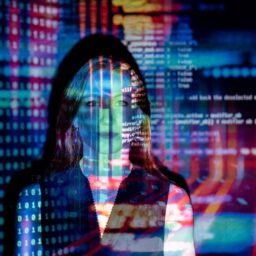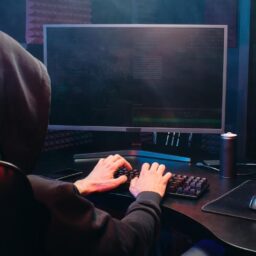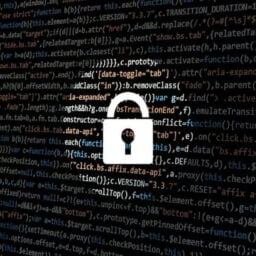Introduction
The concept of crime has been prevalent since time immemorial, with the change of society the type of crime has also been changed. In the 20th century when technology was used on world level scale and the crime also have been shifted to technology-based crime also known as cybercrime. So, we can say cybercrime can be defined as the crime committed via the use of technology or computers. Societies around the globe are changing in the world and India is no exception to it, so is the way of happening of crime changing in the world, and as India is no exception cyber-crimes are happening in India as well.
Legislations on Cybercrimes
After the new economic policy of 1991 was introduced by the government, the IT sector was flourished, and many people were employed and engaged. This flourishment though solved many issues but also created some more new issues like E-mail fraud, wrongful transactions, hacking, etc., these issues were more problematic and in order to prevail over the issues, it was necessary to make some new laws and the result was in creation of Information Technology Act of 2000, which was to provide relief although there was no mention of cybercrime in the Act.
The IT Act deals with a huge range of offences like tempering with computer sources, sending offensive messages, breach of privacy, etc. Under IT Act 2000, the punishment for cybercrime is only if it contains any financial part or breach of privacy. For e.g., offences like data theft, hacking, virus attacks could be prosecuted under section 66 r/w section 43. Sections 463 to section 471 of IPC deals with cases of forging a credit or debit card or fraudulent intent to cause wrongful loss or gain. IT Act amendment of 2008, section 66C protects us against identity theft, Section 66D deals with cheating by misrepresenting online. Section 66E, 67, and 67A with IPC sections 67A and 67B deals with victims of porn and may register the complaints about their privacy under the said sections and IPC also provides for prosecution of pornography and child pornography.
How are the laws in India outdated to deal with cybercrimes?
According to Home Ministry data, the number of cybercrimes has doubled in the past 2 years. India is a country that dealt with the growing act of cybercrimes by IT Act 2000. So, India has rules and regulations related to cybercrime when the cybercrimes were not at their peak and still rise of cybercrime cases, would only mean that the laws are not up to date, and from the report, it can be concluded that the laws are outdated and there is an urgent need for amendment and addition of new laws into the country which will look into matters related to cybercrimes.
Reasons why laws need to be updated
One of the reasons can be that the laws are not strict enough when they are compared to laws of other countries. Like under the POSCO Act of 2012, punishment for child pornography is only 5 years as compared to the US where the punishment is a minimum of 15-39 years. The laws are not stringent which results in less or no fear among the cybercriminals. Mere hacking is not punishable in India unless it includes money laundering, phishing, E-mail fraud, etc. and at the same time the person who has caused major monetary or mental harm to others by hacking is not punishable by life imprisonment
Another reason for the rise of cases is that the crime has happened digitally and the person doing the crime can easily destroy evidence or can make the evidence unusable also the judiciary is not hearing cases of cybercrime on a priority basis and with the time the accused have time to destroy evidence or make it unusable.
Another reason is that there is a lack of trained personnel in the Police force or IT departments which makes the reporting of the case to be more time-consuming and gathering evidence also takes time which results in cybercriminals being encouraged.
So, the laws need to be more stringent, and the judiciary has to make the cases related to cybercrime to be on a priority basis and also to increase the trained personnel in the police force or IT departments which will help in decreasing the cybercrime rate. The need of the hour is the amendments in the field of cybercrime and that will be done by the judiciary of India. So, for these suitable amendments should be done and suggested to the government of India. The punishments that are given under the Information Technology Act 2008 should be revised and more diverse and divisions should be made about how to handle particular cases belonging to the same category. More forces and police personnel should be trained against mischief related to crimes in the field of the internet.
Moreover, citizens should be made aware of their rights and the laws that are there in order to protect them. Along with these strict laws should be made and at the same time, they should be spread so that people have some fear when they think of committing any crime. Although for India it is difficult to define the cyber laws fully but for better functioning and execution of cyber laws this is necessary.
CONCLUSION
Looking at Internationally, the developed countries where technology is higher than of India and they have also developed various legal prohibitions to control cyber offences. In the US, the organizations and private entities are often informed about the new technology in order to secure and protect data. In India, the IT Act was established which was a major step to curb the need for law and to stop the cybercrime at that time but the laws need to be amended and changed on a regular basis which would help in creating fear among cybercriminals which would then result into decreasing the cybercrime rate and will make the laws up to date which will help to cope up with the change of trends.
Author(s) Name: Krishan Kumar Garg (Bennett University, Greater Noida)









